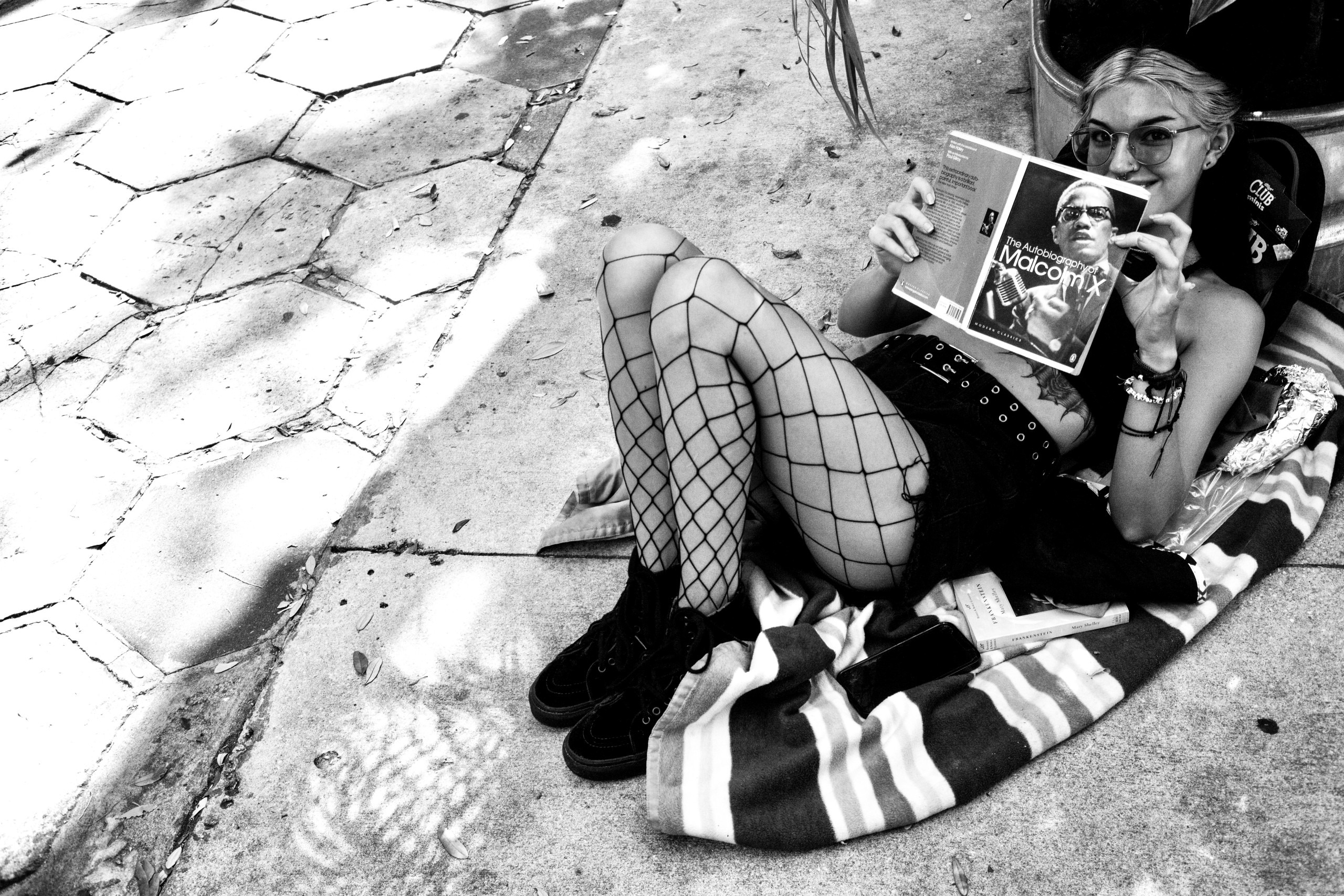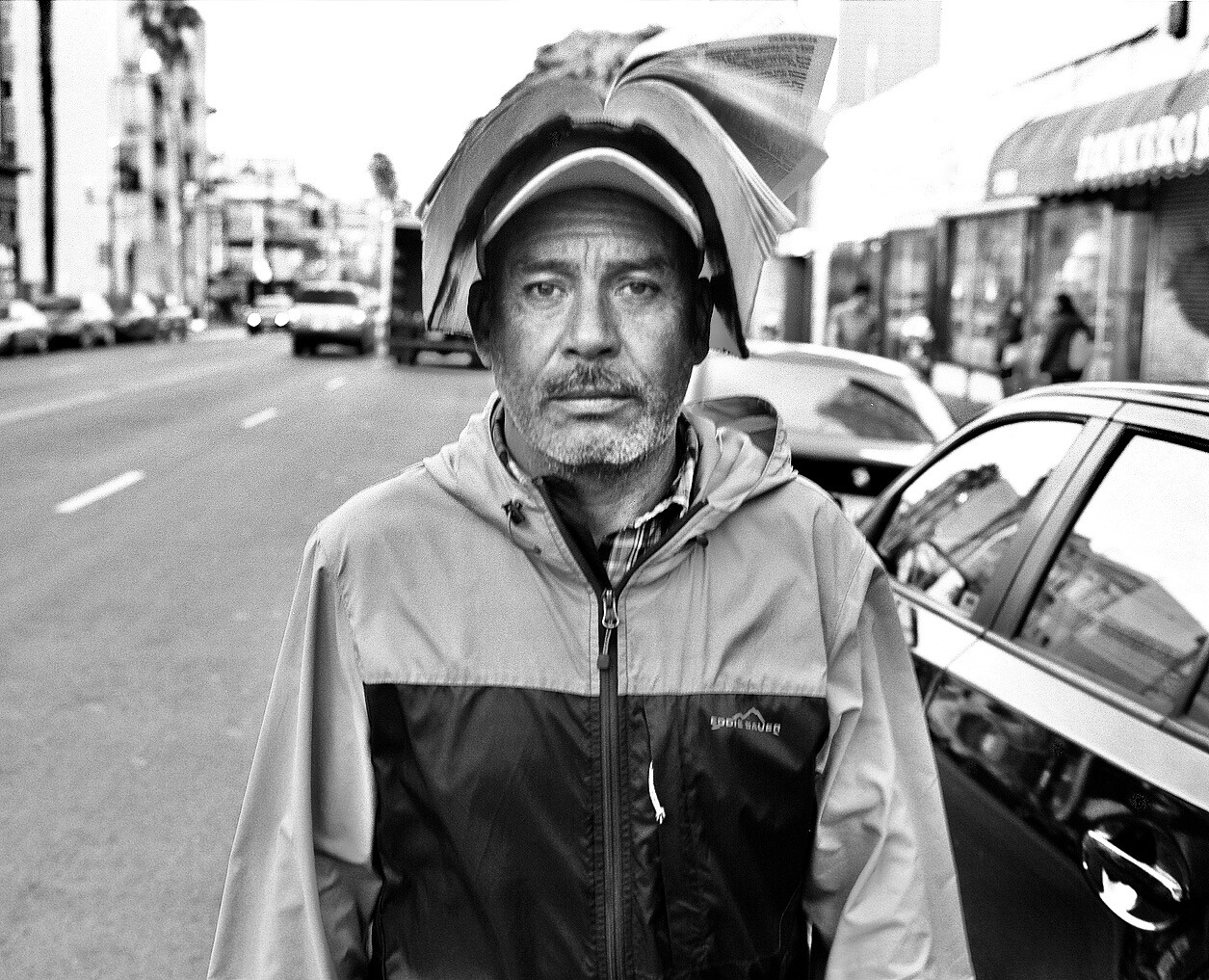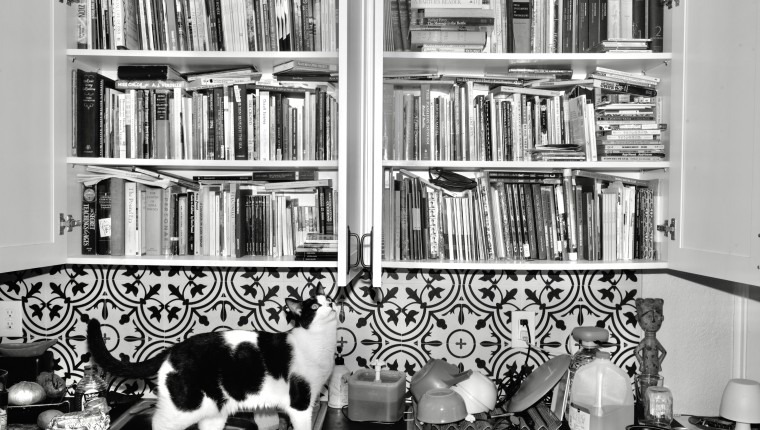I hate bookshelves but that has not always been the case. I once had an apartment with a full bookcase of shelves built into the wall––one end of the main room to the other, top to bottom with a sliding ladder. Up high, I was the antenna of ideas, the assistant librarian next to Borges in his library of Babel. What a format! I could see past the geography of the University Presses and around the islands known as private publishing houses. I wasn’t beside myself. I was beside everything, past and future present. But lonely lone standing bookcases like the ones I have now, box next to box next to box, amputate the room often leaning away from the wall, rarely reaching from the floor to the ceiling. It’s never a perfect fit and even when the shelves are well made and each case appears to be as straight (on all sides) as a block of justified text, the room is reduced to storage, to tightness, the interior design uniform that satisfies someone who either went to college or is addicted to studying which is not the same malady as being in love with reading. That’s right most private libraries resemble, perpetually standing, cloth and paper spines lined up for the firing squad or the digital upload to a cloud.

As far as literacy slogans go, I prefer “Food for Thought” to “You Are What You Read” and my personal recipe for “If you want to hide something from someone, put it in a book” is “If you want a person to read, serve the writing like a meal.” No, don’t trap Shakespeare into the refrigerator, Philip K. Dick in the freezer, Toni Morrison in the vegetable drawer. Although you might do well to double microwave Dante. One year I got rid of more than one hundred books but kept the signed pages, no joke, to remember the dinners with authors. Books, books, books, some lost, a few stolen, many borrowed but never returned. Runaways on an adventurous journey, no highlighting. Pennies from the used bookstore for once cherished editions. Barely half a dollar for a so-called classic, price hike in pencil in the upper corner, so sad for the Moms and Pops crushed by giants, big stores, and Gargantuas and Pantagruels like Mamazon and eBaby. Look here comes another one of the unpublished prophets of The Mission District walking towards me in the bicycle lane with a book, thick as both testaments, on his dogeared head.
The tuxedo on the counter knows the difference between literature and fiction, the camera flash disagreeing with his coat like a hot second on the best sellers list. But, on the other Old Possum’s Paw, there is nothing more Fahrenheit than store credit. Some book clubs burn faster than others. Came in with twelve books, made a trade, left with one, the best one in the whole banned store! Like another head under black cloth, I am reminded of Langston Hughes’s line from “Crown and Garlands,” “I love Ralph Bunche––/But I can’t eat him for lunch.” Since I became the Photo Laureate of St. Petersburg, I get out more, bike more, and snack more often. It’s like I can’t stop f-stopping. A chapter here, an exhibition there, a few essays and a sestina on a bench by the bay, a camera ride in the morning, through the alleys at night, my own face in a puddle of stars, film trading, meetings with shutter nerds. Ask any table of contents, before selfies the most important meal of the day was the author’s photo.

Experience this next statement as if seasonal, as if greener than the leaves of an excellent salad, as if looking at a negative on a light table through one of Calvino’s temporal loupes raised to the neck of a peninsula, Italy and Florida. Language and hunger go hand and hand so much so that Hungarian photographer André Kertész prepared a whole series of photographs titled On Reading. More of an anthem with an appetite than a monogram of holiday leftovers, it contains more nutrition, by far, than the average daily dose of newsfeed with its processed meals of memory erasing deep fakes and sugary bytes. Where have all of the books gone; the same place all of the people have gone, into phones. I can’t resist photographing a person who is reading a book. Split pages (not screens) raised to the face like wise wings. Posture of public solitude, leg crossed. Barcode and ISBN like a birthmark of betrayal or a tramp stamp on the backside, blurbs, waiting to be scanned. It’s only an adventure if you shuffle the identities within each paragraph like a fresh deck of casino cards, if you cut the deck with fish net bribes, all those assassinated X’s come home to roost. Time stab, the street talk of everyday life. The cat’s name is Song. Rest your camera on the bookstore floor until someone, either an Antonino or a Bice, walks into the aisle. Say nothing, not a single syllable of a smile (no need to tell them they are fiction) and wait for the dusty lodge of genres to become great walls, then snap.




